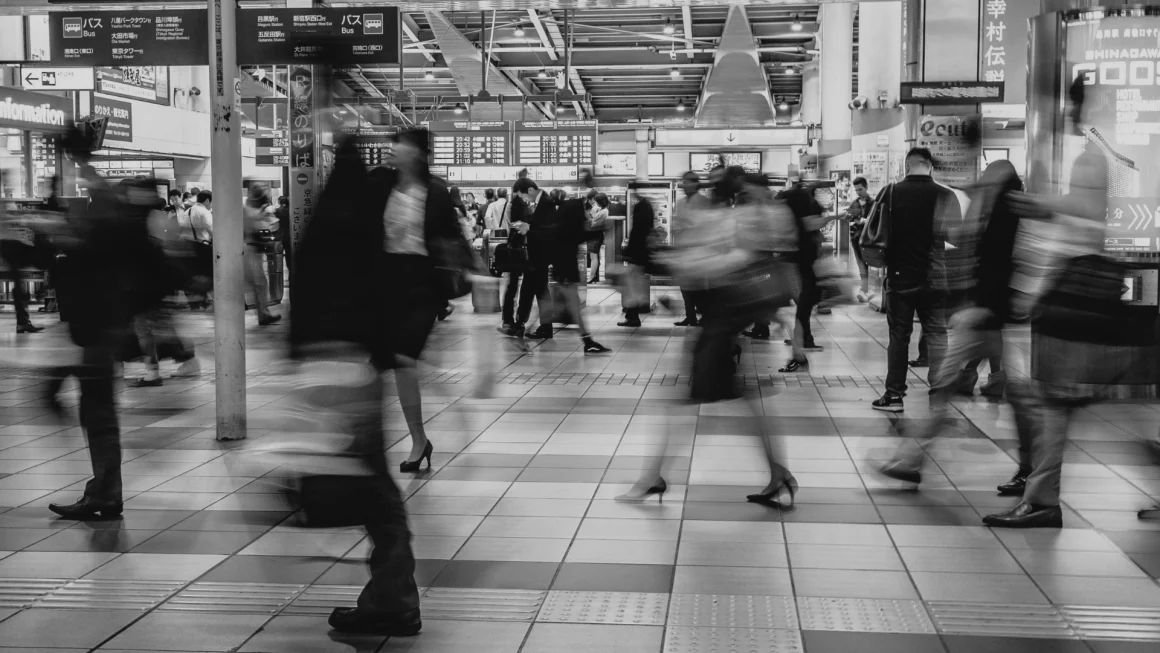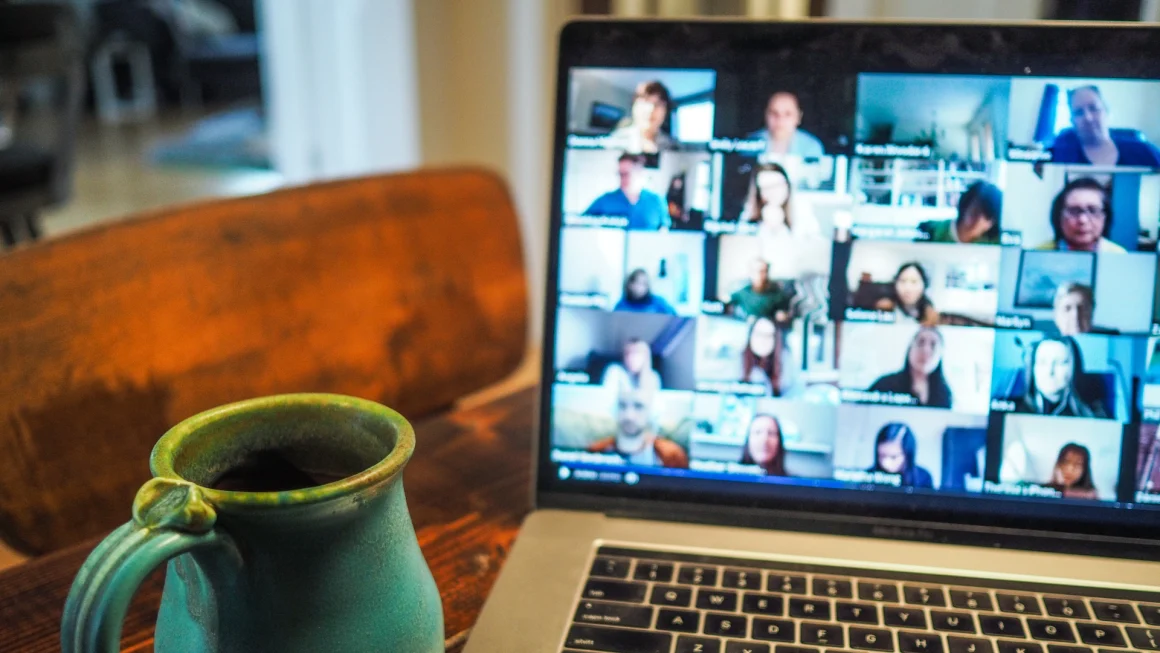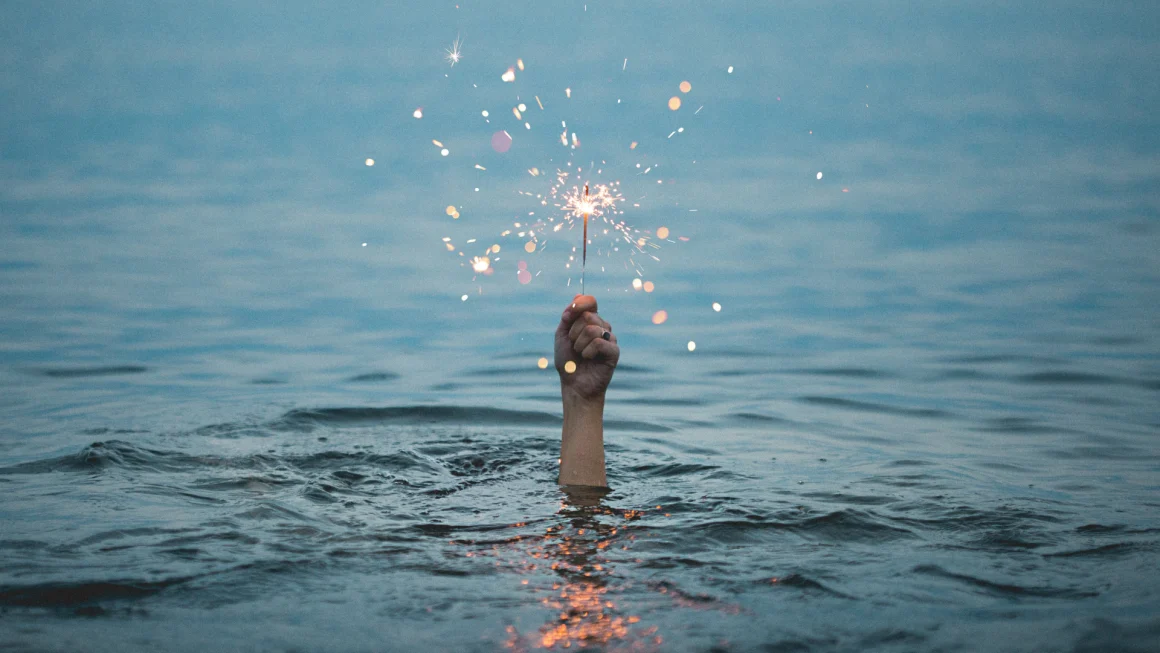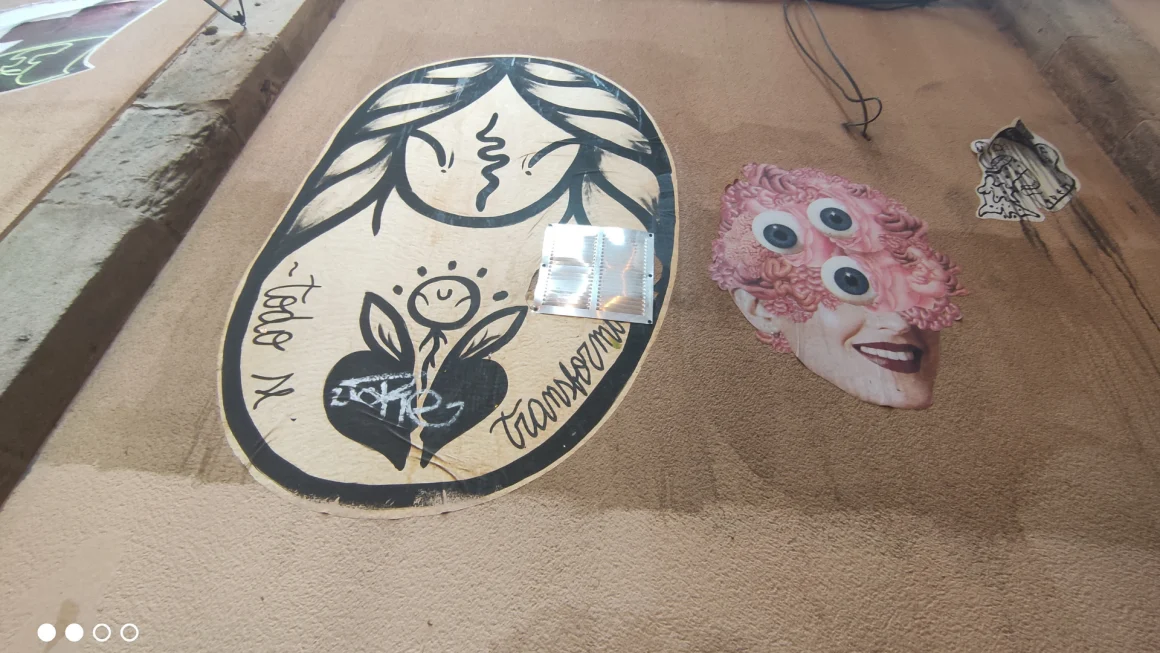Who Are You?
A young hotelier, passionate about his mission: hosting and servicing people who want to enjoy the good things in life. I lead two top luxury hotel properties in Spain. One in Pamplona, where my family comes from. One in Barcelona, which is more important in size, destination and business. Alma hotels.
What did excite you, professionally speaking, in recent times?
The challenge to pursue pure hospitality during difficult corona times. Keeping the flame of essential hospitality alive under harsh circumstances, was actually a profound experience. Good food. Good environment. Good protection. Safe areas. Reaching out to the locals while we were all under lockdown. Occupancy dropped far below 20% in the worst weeks. During the all-time-low of the lockdown we quarantined in the hotel with my wife and two young daughters, and with the family of our cook, plus two more of our staff, to keep operations running for the (few) residential guests, while the rest of the hotel was closed. No prosperous times; happily we entered the corona era in a healthy position. But a bonding experience. We have managed to stay true to who we are. We are full service again. One of the very few in still crisis-hit Barcelona. It is a sign of hope not only to ourselves but also to the market. 2022 will be our full starting year. When all the airflights will be back.
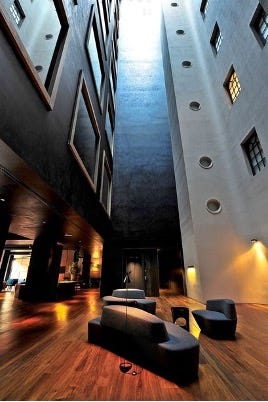
What are the most important trends you perceive on the horizon?
It is difficult to assess trends when the fog of corona blurs the view of society and its future. But more significantly: I don’t do trends. I rather try to avoid the topics of the day. Alma is in it for the long term. Understanding the essence then is way more important. From this perspective many changes are not important. We don’t care about the topics of the day. In many respects we are still doing what the grand hotels two centuries back were doing. Helping people to spend the good life in a subtly sophisticated destination away from home. Surrounding them with other people, in respectful ways.
This also why a crisis won’t break us. We are no revolutionaries. Having said that, making our long-term focus clear, of course we adapt to the movements of society. During the corona crisis I really re-discovered that hotels are places where society interacts. With civility. That makes them important locations. The importance of this ‘social interaction’ -dimension really came to the fore during the corona crisis. Something you see things much more clear, when you miss them.
You asked about the most exciting experiences of late. It’s a great dinner with my wife and a befriended couple. After this interview I go and visit my best former school friends. We all will be sharing a beer on a rooftop. Still online. These are moments with a new relevancy. Both very simple and very dear. And not trendy but of all times.
How vibrant it is to see people entering our hotel doors again. To meet each other. Which they do in our kind of places for over centuries now. At the same time, I notice that we are spending more on quality. More care, more patience, more happiness around conversations. We still must close the restaurant early, due to corona. But I see the interactions at the table significantly changing. Far less cell phones, laptops, screens. During opening times there is more enjoyment than before.

Taking more time to have a quality lunch or dinner conversation. It’s the New Enjoyment. You might call it a blessing in disguise, thanks to corona. It brings us closer to Alma’s prime vision. Ultimate care in what we offer. We don’t have a world famous chef here. We do it on our own, with a fantastic one: Giovani Esteve. With a strong local touch. It reaffirms the usefulness of the hotel.
More than before, amid so many Airbnb offerings in Barcelona, we have to go extra miles to offer something extra. Airbnb gives a new urgency to that, but we always have done so. Ten years ago we transformed a two floor parking lot into, most probably, the most beautiful city hotel garden of Barcelona. At the back of our hotel. Very recently we have put trees in the courtyard in the middle of the hotel.
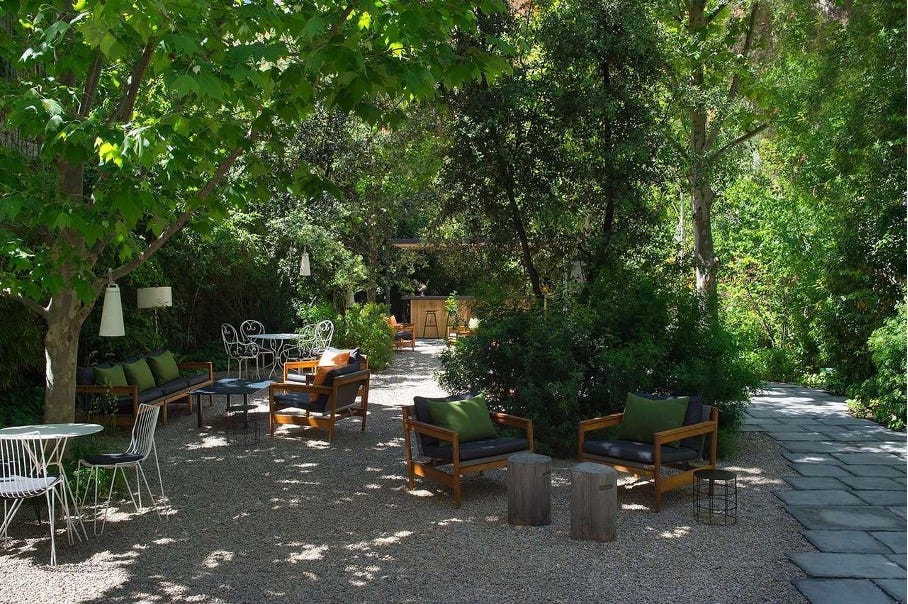
And the rest is about the people, about people meeting people, while we offer them sophisticated services. We have enlarged the restaurant part. At the tables more happens than eating. Gastronomy is also about telling the stories of the astonishing wines we select. Telling that our chef regularly visits villages nearby to buy the ingredients to cook with. Explaining the menu in sophisticated details. High hostelry demands that we raise the standards higher than ever before. While never limiting space for intimate conversations or casual ones. For humans meeting humans.
About that openness to people meeting people: Our front office tells a subtle story on the subject, architectonically supported. The front office does not face our main door. When you enter through the main door, you can go to the right for the check in. When you don’t check in, you can enter the lobby without the office as an obstacle. We don’t want to interrupt the natural flow of our visitors, guests or locals. Philosophy here meets architectural design. Let the people breath as they do at home.
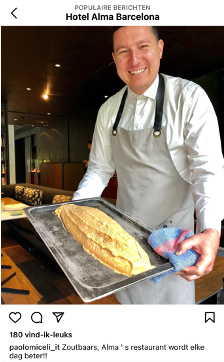
With this focus on intimate and casual subtleties, your staff will play a key role. In this series of interviews several top professionals bring up Emotional Intelligence as an increasingly essential topic.
We very much stimulate natural behavior in our staff. The person who is assisting you has the liberty to act real and natural. There is no protocol behind it, and definitely no standard operation procedures. We don’t prescribe uniform sentences for our staff when they pick up the phone. When we recruit new staff our communication is plain and simple: “We are looking for people who are dedicated and honest.” The sum of these two values encourages people to independent, autonomous behavior, empowers people to think and act by themselves. Never put a filter between your staff and your guests! Take rebate discussion when it comes to the final bill. We pride ourselves that staff is allowed to make their own decisions on the spot. No ‘let me phone my superior, please’ — attitude.
This is our approach to emotional intelligence. You can’t teach it from a text book. That is where standardization would begin, and we don’t want that. You can only teach it via management by example. It does neither come cheap nor fast. But when you focus not on learning the rules but on really understanding the situation, that pays off in the end.
You are talking about the importance of F&B. Several of my interviewees stress, next to F&B, the increasing importance of wellness
I recognize this. We have slightly stepped back on the issue. At Alma we approach it incrementally. Small steps. Wellness is broader than a perfect spa service. We position the wellness theme in a broader context: giving the best service all over the hotel, not restricting it to the traditional spa. At the same time, we are extending the spa wellness experience, with suggestions for yoga lessons and outdoor exercises. In our Pamplona hotel we have worked out perfect cycling routes. Poetry interacting with the surrounding.
Are Millennials changing the hospitality scene
Apart from the fact that this subject is difficult to assess with almost everything in flux due to corona, we are not too much focused on generational cohorts. For the same reasons as we are not too much into trends. Of course, we watch our guests carefully. But not per se from a generational perspective. Our key focus is on sophisticated enjoyment. That we can offer to all generations. A 20 years old girl drinking wine is someone else than a thirty, a forty years old woman drinking the same wine. The more mature woman might appreciate wine even with more depth, with more appreciation for its details. But not per se. The same goes for enjoying our general curated services. Which is why we don’t focus on the younger generations in themselves. Define your target guest: we have never done that. We have a public building free to anyone to enter and enjoy. Why should I demarcate target groups? I know what I have to offer. I know what I am proud of. I know people enjoy. Especially people who enjoy life a little bit deeper. That’s enough.
What future-related topics do you advise us to research?
One, of course: How will people travel post-corona? Will the more ‘profound’ experience and joy of meeting people, that I spoke about, continue? Or will we go back to the old normal? And, related to this: the restrictions, we live under now, how will they evolve?
Second: We are living in a fully digital universe now. Most people book via the big online operators. They orient themselves on Instagram. There is always Booking et cetera in the middle. How can we ‘seduce’ people to book at the hotel websites directly?
Third: We see a growing tendency for tourists not so much booking a stand-alone hotel stay. We see them booking broader ‘all-over experience’ stays, possibly embracing more than one hotel. How can we become part of these ‘broader experience’ stays? What agencies are focusing on that approach? What agencies are trusted? How can we as Alma hotels fit in?
If you want to be in contact with thought leader Joaquin Ausejo Asiain, please email [email protected]

